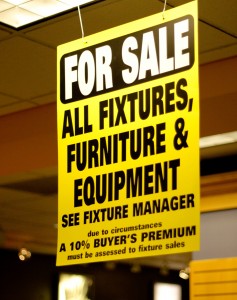Borders close gets bookstores talking

Borders bookstores announced July 19, despite chapter 11 bankruptcy, the 40-year veteran bookseller would be closing its some 400 doors permanently by September’s end.
Despite restructuring efforts, no acceptable bids to buy the company were placed.
Carl Howe, director of consumer research at the Yankee Group, which studies information-technology markets, said that while technology is providing more ways to consume knowledge, books will still
survive.
“I think books have been with us for 400 years, and in 10 years we’re still going to have books,” Howe told Allison Keyes in an interview on National Public
Radio’s “Tell Me More” program.
Borders failed, though, Howe said, because it built hundreds of physical stores rather than investing in the nascent digital market. These decisions were made while Amazon secured its place in the Internet market, and a variety of e-book formats debuted.
Essentially, “they bet on the wrong horse.”
Mike Edwards, President of the Borders Group, echoed Howe’s opinion in a press statement, citing the “rapidly changing” industry and the “e-reader revolution” as the reasons for Borders’ demise.
Howe said that e-books are “an extraordinary growth industry.”
“Only a couple years ago, there really wasn’t an e-book business,” Howe stated.
According to Yankee Group calculations, sales of e-books totaled less than $200 million by the end of 2008, the year after Amazon launched the first model of its successful Kindle
e-reader device.
For 2011, Howe projected that e-book sales will reach $1.4 billion, following the 72 percent increase in sales per year that
Yankee Group has tracked.
There are success stories in resisting the influence of electronic trends. Cary Loren is the owner of The Book Beat, an independent bookstore that operates without e-book sales and has served Oak Park since 1982.
“There’s something about when you’re in a bookstore and you’re browsing through things, it sets off different things in your head, different associations that don’t happen when you’re on a screen bouncing from thing to thing. That physicality is no longer there,” Loren said.
The artistry of a book is sometimes not translated well, he explained.
“A book is really an art object. There are some really fine books that don’t translate on an e-reader, ” Loren said.
According to Loren, The Book Beat has been as successful because of its ability and commitment to serving specific and specialized areas.
“Our store knows more about children’s books, art books and photography books than almost any store. So, we became specialists in a few fields and we never had a lot of competition, really,” Loren said.
Bestsellers became less of a concern the store focused on more esoteric, harder to find books that Loren said bigger stores overlook.
The news of Borders stores closing did not shock Loren.
“I don’t think they did a great job as a bookseller,” he said. “I think that there is a need for bookstores, and I’m sorry to see bookstores and booksellers be out of work.”
Smaller stores will likely open up and take advantage of this vacuum, he said.
With the closing of Borders, some question the vitality of the physical book in a market that is increasingly accepting of virtual books and cloud-storage media.
Bethany Boutin, English and French secondary education major at Oakland University, “will always love the written word and the physical book.”
“Nothing can replace its feel, its smell, its comforting physical presence. I like to physically interact with a book: to flip through pages and mark it up and keep it on my shelf,” she said.
And while Boutin admires e-readers useful features like built-in dictionaries and the ability to save your exact position on a page, she said that she will “dread the day that books go out of print.”
“Fortunately, I think enough people share my view and I think it would take quite an effort to break down the barrier of protest that would surely arise in the face of book-extinction,” she said.







